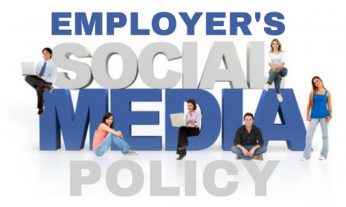 What is your employer’s social media policy? Can employees be punished for criticizing their employers on social media? James Kennedy wrote some complaints on Twitter about Chipotle restaurants. One of these tweets criticized Chipotle for charging extra for guacamole. Another complained that the prices of Chipotle’s meals were excessive, considering the salaries of its crew members.
What is your employer’s social media policy? Can employees be punished for criticizing their employers on social media? James Kennedy wrote some complaints on Twitter about Chipotle restaurants. One of these tweets criticized Chipotle for charging extra for guacamole. Another complained that the prices of Chipotle’s meals were excessive, considering the salaries of its crew members.
These kinds of tweets might not please Chipotle’s marketing department, but one would not expect there to be much fuss about them. There was a complicating factor, however – Kennedy himself was a Chipotle crew member. And Chipotle had a Social Media Policy Code of Conduct, which prohibited employees from posting “disparaging” statements on social media platforms such as Twitter.
Chipotle insisted that Kennedy delete some of his tweets. When Kennedy circulated a petition among employees in protest of the company’s break policies (Kennedy alleged that the company was not following its own regulations), his manager directed him to stop. When Kennedy refused to stop circulating the petition, he was discharged.
Kennedy alleged that he was fired in violation of the National Labor Relations Act (NLRA). On August 18, 2016, the National Labor Relations Board (NLRB) ruled that he was wrongfully terminated. The NLRB’s opinion states that many of Chipotle’s policies are unlawful, including its Social Media Code of Conduct.
The Chipotle Social Media Policy Ruling
The Board’s social media policy ruling ordered Chipotle to do all of the following:
- Offer Kennedy his job back, or a substantially equivalent job (if his former job no longer existed).
- Pay Kennedy for his lost salary and benefits.
- Remove any references to Kennedy’s discharge in its files.
- Allow its workers to circulate petitions regarding employment conditions.
- Stop enforcing its Social Media Policy Code of Conduct, which prohibits employees from posting “incomplete, confidential or inaccurate information and making disparaging, false, or misleading statements.”
- Stop enforcing its “Solicitation Policy,” which prohibits employees from soliciting even when they are off the clock, if they are in working areas, and the solicitation could be seen or heard by customers.
- Stop enforcing its “Chipotle’s Confidential Information” rule, which limits how employees may use the name of the restaurant.
- Stop enforcing its “Ethical Communications” rule, which directs employees to “avoid exaggeration, guesswork, and derogatory characterizations of people and their motives.”
- Stop prohibiting its employees from discussing politics, and from using the restaurant’s name for political purposes.
- Post notices in specified locations in Chipotle facilities which inform employees that the NLRB found that their employer violated federal labor law. The notices also inform employees of their labor rights, and explain that Chipotle will no longer maintain certain policies (such as the Social Media Code of Conduct, the Solicitation Policy, the Chipotle’s Confidential Information rule, and the Ethical Communications rule).
